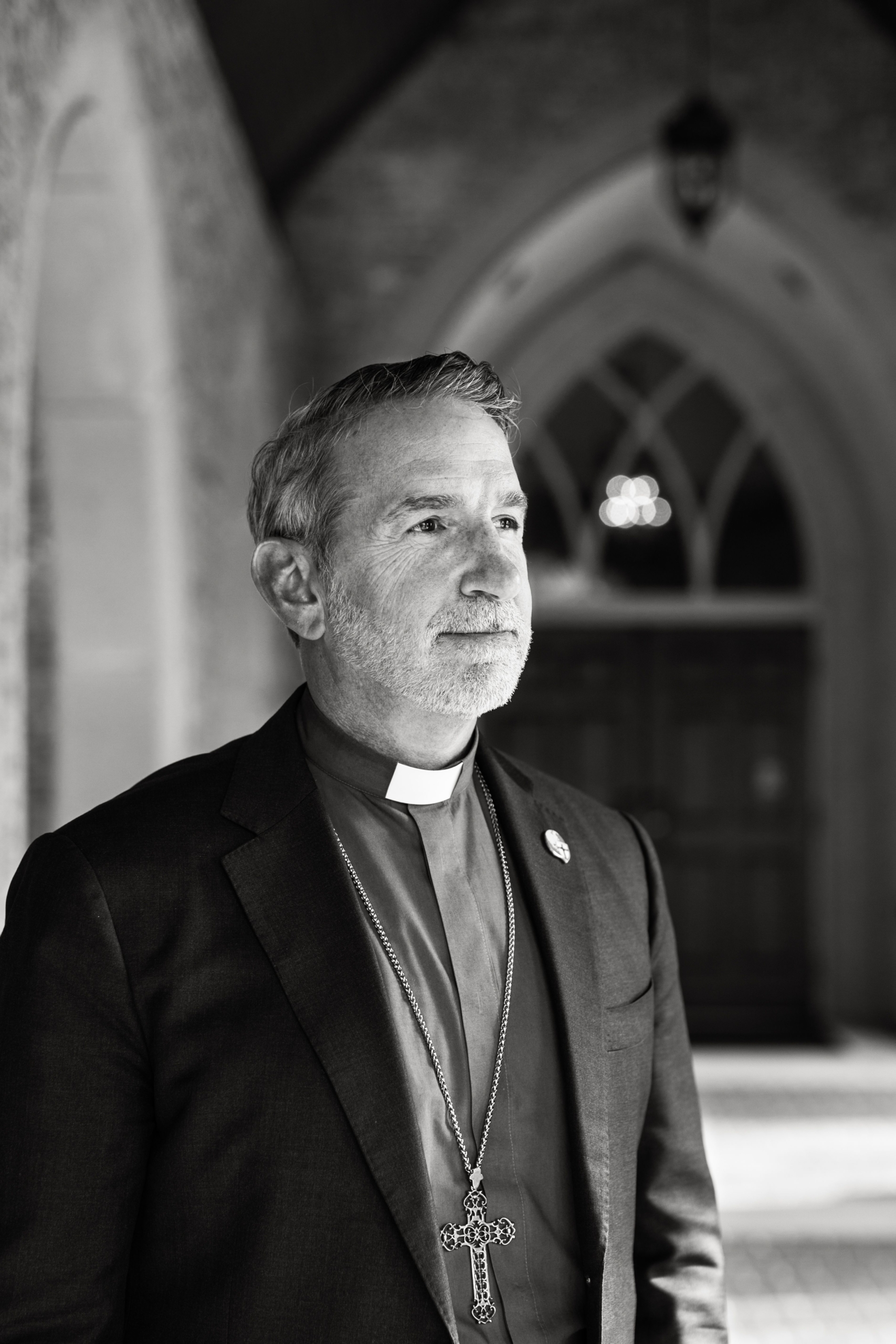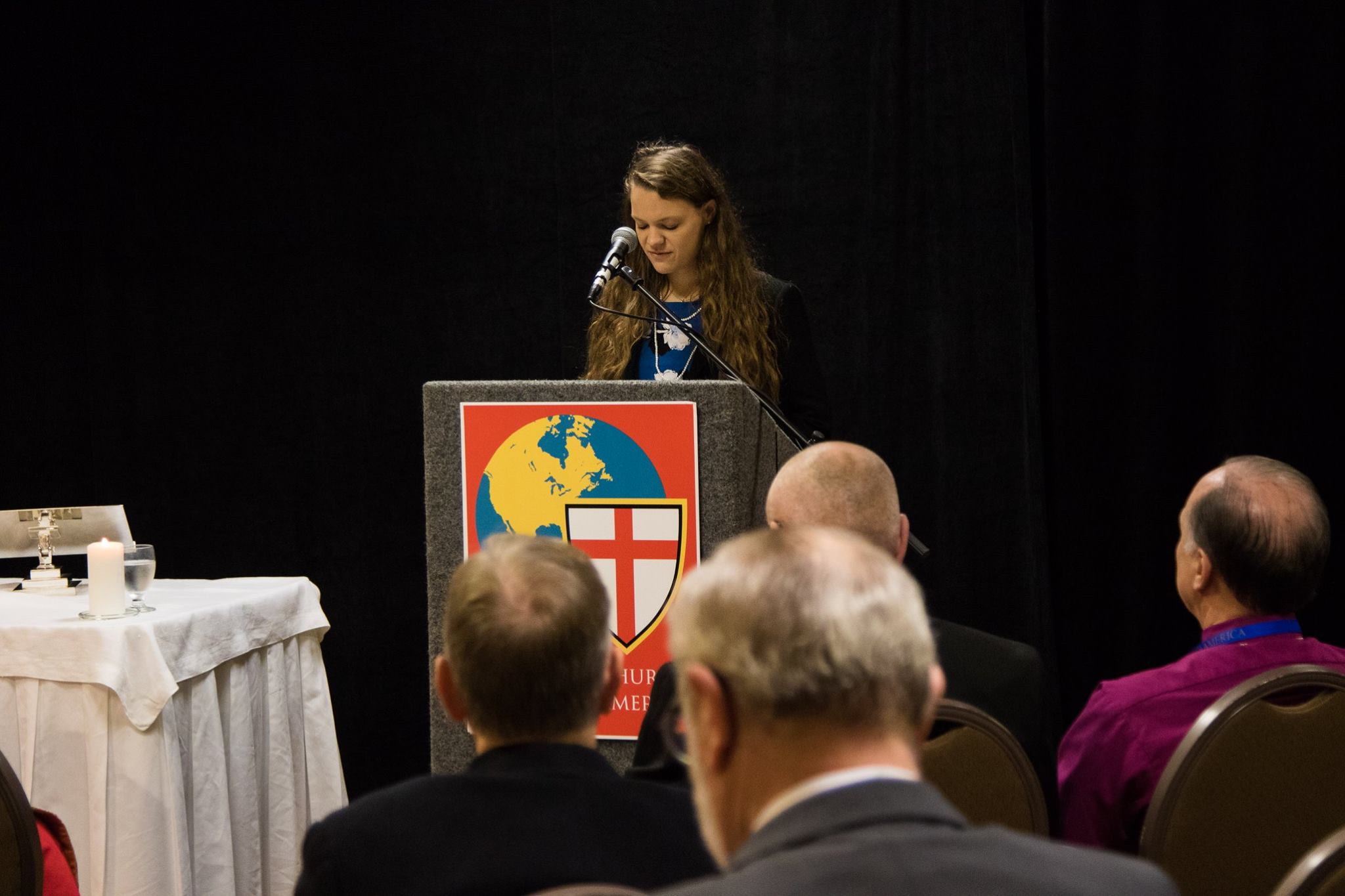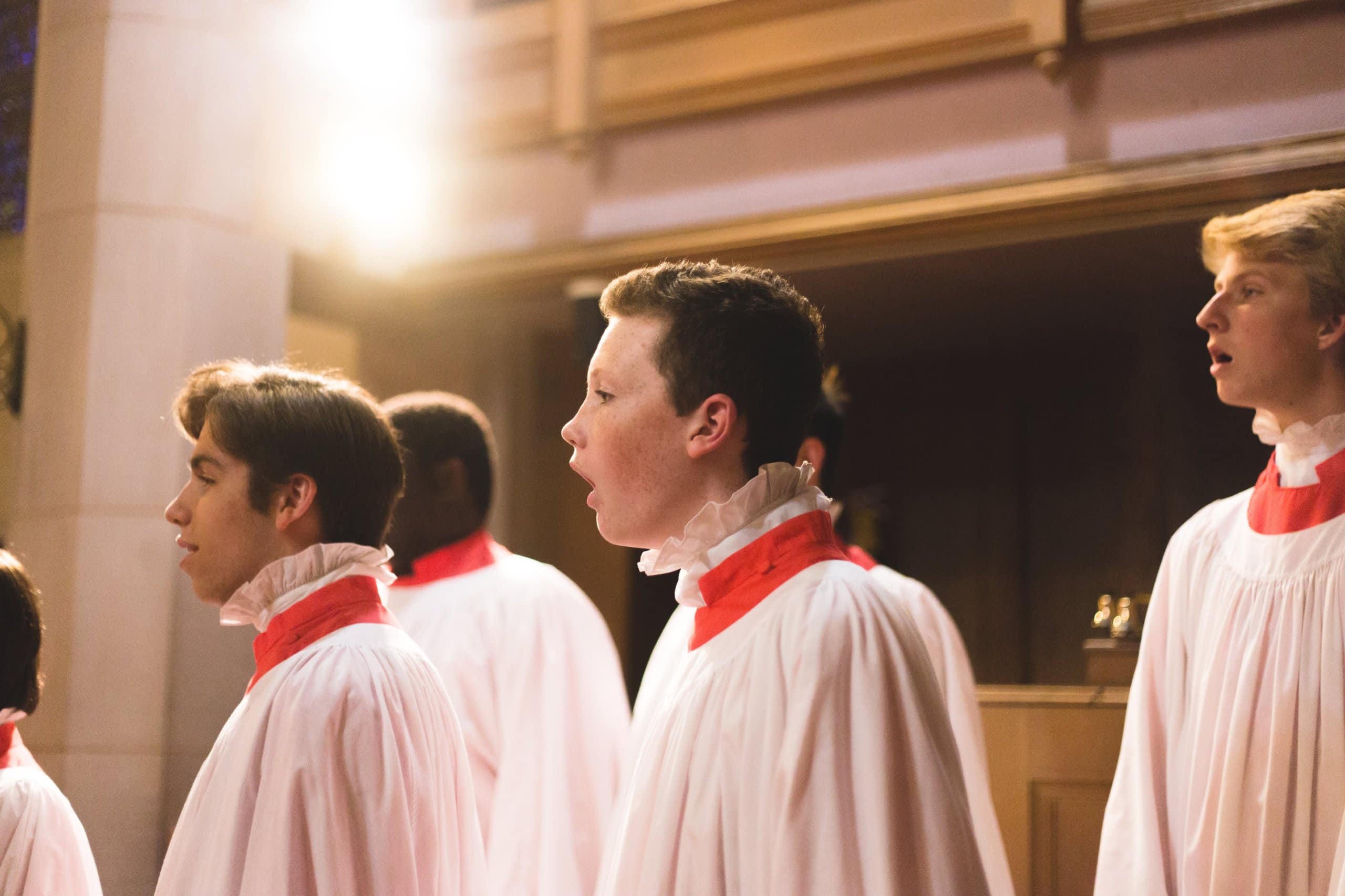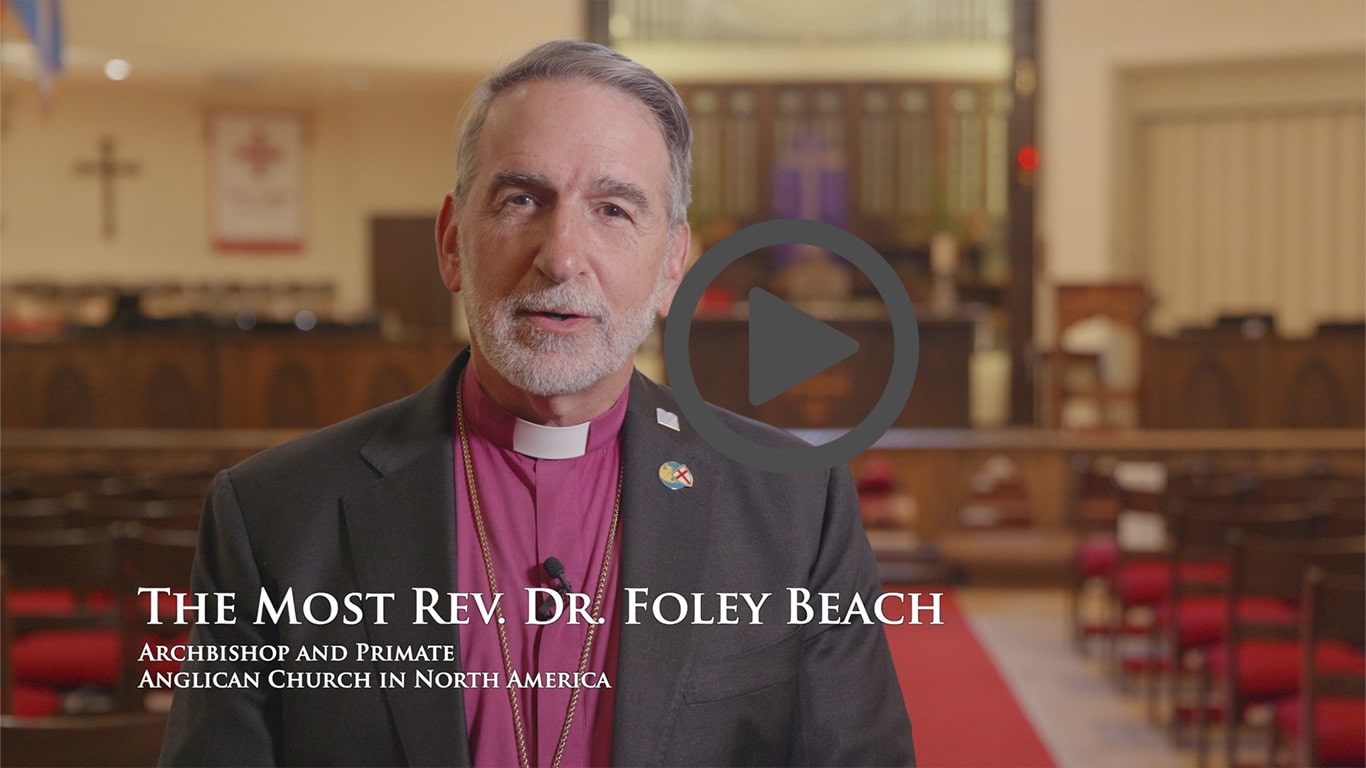Title: On Parrhesia and Gospel Witness
Author: Mark Brians
When the crowds encircle Christ in Solomon’s Porch during the Festival of Dedication, they charge him: “tell us boldly who you are!”[1] They do not draw-up to him to with excited anticipation as they did earlier in the Gospel,[2] instead they flank him like a gang of wolves. Already the crowd by the shore has begun its transformation into the mob of Good Friday.[3] Though he has already told them in several places[4] who he is, they charge him to do so at that moment with parrhesia –with a boldness about the truth being spoken. They are in a sense asking him “tell us again the truth we already know and yet cannot bear to receive; and say it with the boldness that will make us want to kill you.” This is what parrhesia means: the kind of boldness about the truth that hazards death and rejection. The person who speaks with parrhesia, Michel Foucault once noted, “risk[s] death to tell the truth instead of reposing in the security of a life where the truth goes unspoken.”[5] Amidst the controversial social issues of the day, the Anglican Church in North America must be a province marked by this same parrhesia –this boldness about the Truth which hazards severe consequences– or else it will cease to be what it is.
Such a charge, however bold it may seem, is not as simple as it first appears, for we live in strange times. Ostensibly, North America celebrates boldness –parrhesia— as a supreme virtue. Many voices, popular and academic, across the political spectrum enjoin us to “be bold” about our opinions and our persons. “Proud” is often the form this North American construal of boldness takes, forgetting that “the Lord resists the proud but gives grace to the humble.”[6] Being bold in this popular way, Christians across the continent have taken to social media, joined-in marches and rallies, and have left churches and friendships torched in their wake. This popular North American brand of boldness seems to offer and excuse from the costliness of loving one’s neighbor –especially if that neighbor disagrees about mask mandates, or put a particular candidate’s sign in their front yard.
The kind of boldness vended in popular culture is a pseudo-parrhesia; a loud confidence which leaves everyone more secretly anxious, angry, and ashamed; a boldness fueled, frequently enough, less by love for the Truth than by hatred for a scapegoat. It is a boldness that is often little more than a euphemism for a brutality that shows little regard for the worth of human persons. It is, in the final analysis, not actually bold.
It is essential therefore for the Church to distinguish Gospel parrhesia, true boldness, from the false and popular kind on offer in the wider culture. As the Anglican Church in North America seeks to be a community that speaks the truth boldly in a world of falsehood, a community of parrhesiastes, there are four essential marks which differentiate the boldness of Christ in John 10 from cheap and false substitutes.
First, Gospel parrhesia is anchored in Christ and finds its origin in the love of the Trinity. It is not anchored in a strictly interior and fleshly self-confidence, which we are called to reject.[7] Instead, the Christian’s ability to bear witness to the truth comes through Christ Jesus “in whom we have parrhesia and access through our faith in Him.”[8] The love of Christ makes us bold, and in his love “we have parrhesia to draw near to the throne of Grace.”[9] And this boldness before the Father is what sends us in the power of the Spirit to be bold in our proclamation of the truth, like the disciples who spoke the word of God in the face of persecutory powers with all parrhesia.[10]
Standing in this kind of confidence “in Christ in God”[11] enables a firmness of resolve in speaking the truth in the face of consequences. Neither the anger of those to whom the truth is spoken, nor the fact that the truth may not be heard or received with the desired effect, nor even the fact that the speakers themselves may be called to repent from the false ways in which they have spoken, can shake or unseat the Christian love of the truth. Far from deploying Christian faith as a means to proving oneself right in what one says, Gospel parrhesia begins and ends in the righteousness of the Jesus who comes less to “prove them right” than to “bear witness to the Truth.”[12]
Secondly, true parrhesia counts the cost of speaking the truth, as in the book of the Acts of the Apostles where the apostles are not merely undaunted in the face of persecution, but un-surprised by it.[13] Easy ersatz boldness, after speaking boldly, leaves behind a fragile uneasiness. Christians “take a stand” on an issue of Gospel truth, and are subsequently dismayed and alarmed at the push-back. It is desired simultaneously to be bold and edgy and warmly tolerated. If, as Foucault has suggested, parrhesia means choosing “frankness instead of persuasion, truth instead of falsehood or silence, the risk of death instead of life and security, criticism instead of flattery, and moral duty instead of self-interest and moral apathy”[14] then the Christian who lives thus boldly chooses to occupy costly position in her community. Peter Leithart is right: “Parrhesia is the virtue of martyrs.”[15]
To speak the truth with boldness in a community defined by parrhesia is to not balk in the face of the danger of bearing witness to the truth, as well as not being surprised by those dangers when they lay their cost. Suffering for the sake of the truth is real and ought to be lived before God by his people in lament and imprecation, admitted to and acknowledged, not merely borne without emotion. That pain can be spoken. But it is precisely this willing to suffer for the Truth that marks the church as a people who add the signature of their lives to the testimony of what is real.
Third among the markers of Christian parrhesia is a conformity of life to the message of the truth. St. Paul told the Philippian believers that “it is my eager expectation and hope that I will not be at all ashamed, but that with full parrhesia now as always Christ will be honored in my body whether by life or by death.”[16] St. Paul bore in his manner of life a perpetual second witness to the truth-claims he made. The challenge of parrhesia, suggests Craig Hovey, is “deliberately living in such a way as to be freed and enabled to speak the truth.”[17]
The world has watched in horror over the past several decades as scandal upon scandal has broken upon Christianity. It is with no little irony that those very leaders who seemed the boldest in their convictions and preaching, became the very ones who hid and dissembled when called to account; their witness marred by a lack of conformation with the truth they proclaim.[18] Perhaps because the failures of celebrity ministry-leaders receive all the press, Christians may be tempted to ignore the way that such non-conformity occurs in smaller settings: on social media, around dinner tables, in arguments with family, at vestry meetings, through SMS messaging, etc. The Church must, at all levels, seek to “walk in the light as He is in the light,” conforming its life and the lives of its members to the Person of Jesus.
True Gospel parrhesia thus demands a truthfulness on two levels: (1) a conformation to the Person of Jesus, so that the truth spoken by the Church is also the truth lived by the Church; and (2) a culture of confession, in which each and every way that the Church fails in this regard is exposed, confessed, and healed. This is where Foucault made his great misunderstanding about truth and power: he “misunderstands how confession of sin is related to proclamation of the Gospel.”[19] He failed to see the link between the parrhesia of the penitent, who makes bold with God about his or her sins and offenses, and the parrhesia of the evangelist, who makes bold to the World about God’s forgiveness of sins. Among the community of the penitent, therefore, Gospel parrhesia begins in the place of confession. Hovey notes that “[i]t should not be surprising that the same virtue as the Christian confrontation with unjust rulers gives expression to the same virtue as the Christian confrontation with the injustices of the self.”[20] One’s ability to demonstrate boldness, parrhesia, in the world cannot be dislocated from his or her willingness to confess with parrhesia. Unless this happens, Dietrich Bonhoeffer warned, “we remain alone with our sin, living in lies and hypocrisy,”[21] and, as St. John wrote, “the truth is not in us.”[22]
The boldness that results from confession is the mark of Christian witness. “Now our brother stands in Christ’s stead. Before him I need no longer dissemble. Before him alone in the whole world I dare to be the sinner that I am.”[23] In confession, moreover, one speaks with parrhesia and resolve about future conduct. As Brian Druppa counseled his readers, the Church is to come to confession not only bold in God’s mercy and bold to speak the truth to our brother about our sins, but bold also in our “[r]esolutions for the time to come never to offend in the same kinde [sic] again: for without this, Confession is but a mere Pageant.”[24] A Church that seeks to be a community that speaks the truth with parrhesia must be a community marked by this kind of repentance and forgiveness and a growing conformity to the Image of Christ.
Finally, Gospel boldness is marked by charity. Christ does not call his disciples to some easy naivete which mindlessly says “I have no enemies –there are none who intend my ill and no injustices against which I must speak.” But Christ does call his disciples to love their enemies, to serve them, to pray for them, to be good to them, and to win them.[25] False parrhesia, false boldness about the truth, excuses us from kindness and civility. One sees this across America and across the political spectrum: a boldness that finds strength in being gruesome in its disregard for those who disagree, and which exchanges loving argument for sour ridicule. There is a kind of boldness that lets one’s neighbors know where one stands on the issues of the day, but it is another kind of boldness altogether which invites the disagreeing neighbor into one’s home for dinner and engages in costly conversations over desert and wine. It costs little to scorn those to whom the Church speaks the truth, but a deep costly parrhesia is needed to suffer with patience the scorn of our enemies and neighbors as we bear witness to the truth.
Such a posture lends force to the witness of the truth. To love one’s enemies and those with whom one disagrees, in local and embodied ways, is to prove by example one’s confidence in the truth. It is “the confidence that the truth can speak for itself.”[26] For to speak evidence without charity is in fact not to speak the fullness of the truth. It is to concede that one does not actually believe in the power of the truth; it is to believe that the truth is a lifeless and blunt instrument only useful when deployed as a cudgel operated not by its own power to effect, but by one’s own main force.
Christian parrhesia must be marked by a patient charity which, like the Lord Himself, is slow to anger.[27] This does not mean doing nothing, being idle, but resisting violent and uncharitable interventions in order to hasten the victory of the truth. For, as Hovey rightly discerns “[i]f victory could be brought about by the temerous intervention of the witness qua protester, it would not be the truth that wins.”[28] For Christians, the truth is living and active, not a dead and unliving tool of coercion.[29] A boldness that this truth will be victorious is what inspired Thomas Cranmer to so easily forgive his enemies and those who had orchestrated his harm:
“What will ye have a man do to hym that ys not yet come to the knowledge of the trueth of the gospel? […] if it be a true rule of our Saviour Christe to do good for evill, than lett suche as are not yet come to favour our religion lerne to folowe the doctrine of the gospel by our example in using them friendlie and charitablie [sic].”[30]
Christians in North America, Anglicans included, have proven themselves capable of being bold about their enemies. Have Christians in North America been as bold in loving them? The degree that this answer is “no”, is the degree that the Church has lacked true parrhesia. Anglicans in North America must love the truth with all the bright radiance of blessedness while also loving those from whom they suffer the cost of that love of the truth. As costly as such work is, extending charity while bearing witness to the truth is precisely the work of those who bear the Name of Jesus, for “those who have seen the risen Christ cannot longer be satisfied with easy consolation.”[31] More simply, stated as an injunction: Speak the truth in love.[32]
Rather than addressing itself to any of the particular contemporary issues to which our Province must give a Christian witness, this essay instead has considered the way in which such a witness is given. It is the risky and daring Gospel parrhesia, inspired by the Spirit of Truth,[33] which must mark the witness of the ACNA. Confident in the love of Christ, joyful in the face of the hazards resultant from speaking the truth, conformed to Christ’s image through confession and growth in holiness, and abounding in love and charity towards those to whom it speaks the truth, such a Church can speak by the Spirit into any of the issues which demand its witness. “A church characterized by parrhesia shakes the earth until only unshakeable things remain”[34] contends Leithart. That’s good news. In an age marked by the overwhelming sense of powerlessness and despair, the Church is called to demonstrate what it means to be truly bold.
[1] John 10:24.
[2] cf. John 6:1-15, 25-28.
[3] John 19:7, 12.
[4] viz. John 2:18-22, 5:17-47, 6:29-69, 7:16-24, 7:37-39, 8:12-59, 9:35-39, and 10:1-18.
[5] Michel Foucault, Discourse and Truth: The Problematization of Parrhesia, Lecture Series at University of California at Berkeley (Oct.–Nov., 1983), transcribed by J. Pearson, https://foucault.info/parrhesia/ p.4.
[6] Proverbs 3:34, 16:5; James 4:6.
[7] cf. Proverbs 26:12; Romans 12:3; Galatians 6:3; Philippians 2:3.
[8] Ephesians 3:12; cf. Philemon 1:8.
[9] Hebrews 4:16.
[10] Acts 4:13, 4:29-31; cf. Acts 28:31.
[11] Colossians 3:3.
[12] John 18:37.
[13] Acts 4:23-31.
[14] Foucault, Discourse and Truth, p. 5.
[15] Peter Leithart, Solemn Charge and Exhortation, Trinity 2021, an address delivered to the 2022 class of the Theopolis Fellows Program.
[16] Philipians 1:20.
[17] Craig Hovey, “Free Christian Speech: Plundering Foucault,” Political Theology, 8.1, (2007), p. 71.
[18] Aware of ongoing investigations in the Province and their unfinalized nature, this statement is not intended to “weigh-in” on those proceedings or anticipate their outcomes in advance. It notes only the scandals of the past several decades, whose verdicts have been reached.
[19] Hovey, “Free Christian Speech,” p. 76.
[20] Id., p. 77.
[21] Dietrich Bonhoeffer, Life Together: The Classic Exploration of Christian Community, (trans.) John W. Doberstein, (New York: Harper & Row Publishers, 1954), p. 110.
[22] 1 John 1:8.
[23] Bonhoeffer , Life Together, p. 111.
[24] Brian Druppa, A Guide for the Penitent, (1660), pp.4-7; as quoted in Benjamin Guyer (ed.), The Beauty of Holiness: The Caroline Divines and Their Works, (London: Canterbury Press, 2012), p. 212.
[25] e.g. Matthew 5:43-48; Luke 6:27-36.
[26] Hovey, “Free Christian Speech,” p. 79, (emphasis in the original).
[27] Exodus 34:6; Numbers 14:18; Psalm 78:38; Proverbs 14:29; cf. Romans 2:4; James 1:19.
[28] Hovey, “Free Christian Speech,” p. 79.
[29] Hebrews 4:12.
[30] J.G. Nichols (ed.), Narratives of the Days of the Reformation, Chiefly from the manuscripts of John Foxe the Martyrologist; with Two Contemporary Biographies of Archbishop Cranmer, CS, First (Old) Series, LXXVII ([London], 1859) National Portrait Gallery, London, pp. 246-7; as quoted in Ashley Null, “Thomas Cranmer’s Reputation Reconsidered,” in Reformation Reputations: The Power of the Individual in English Reformation History, (eds.) David J. Crankshaw and George W.C. Cross, (London: Palgrave Macmillan, 2021), p. 194.
[31] Hovey, “Free Christian Speech,” p. 80.
[32] Ephesians 4:15.
[33] John 16:13.
[34] Leithart, Solemn Charge; cf. Acts 4:31, 16:26; and Hebrews 12:26-28.





